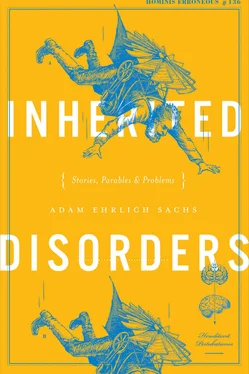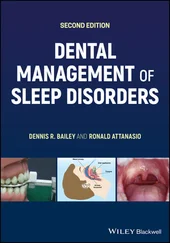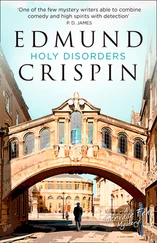…………………….
A Newton tutor was paid handsomely by the town’s lawyers, consultants, and investment professionals to take their sons and daughters and transform them into younger iterations of themselves, thus ensuring that Newton’s money stayed in Newton. One day, however, the tutor found that he could no longer in good conscience help the plutocracy reproduce itself. He gathered up the sons and daughters of the elite of Newton, and also of adjacent Brookline, Wellesley, and Weston, and led them to a self-storage facility in Framingham and locked them in, standing upright, packed tightly together.
The four wealthy suburbs launched a statewide search for their children. After a year they gave up and held a series of somber but well-catered memorial services.
A decade later, the tutor invited the mothers and fathers of the missing children to the Framingham storage facility. With a flourish he flung the rolling metal door upward, expecting the dead sons and daughters to topple over at their parents’ feet. But instead they walked out perfectly healthy, a third of them lawyers, a third of them consultants, and a third of them investment professionals. They were a little thin and a little thirsty, but basically they were fine, and financially they were doing extremely well. To this day the tutor has no idea how it happened. He was paid handsomely for finding them.
…………………….
A poet and a physicist at the same East Coast college each had a son on the very same day. Each hoped that his son would follow in his footsteps — the poet’s son into poetry, the physicist’s son into physics. But it was not to be. By the time the boys turned three, the poet noticed that his son had a physical view of the world and the physicist noticed that his son had a poetical view of the world. One night, while their wives were asleep, they effected a son exchange. The poet and the physicist were exceptionally careful — they cut their sons’ hair, exchanged their clothing, and so forth — and the next morning their wives were none the wiser.
The exchange was a terrific success. The physicist’s son became a first-rate poet, developing his sham father’s poetic style in interesting ways and enhancing both of their reputations. The poet’s son, meanwhile, became a superlative physicist, and proposed an ingenious theory that explained many of his sham father’s experimental results. The poet and his wife loved their sham son, and the physicist and his wife loved their sham son.
It was, in short, an ideal situation.
As it happened, the poet’s son and the physicist’s son both went on to teach at the same West Coast college, and each had a son on the very same day. The poet’s biological son — the physicist — had long, unbeknownst to his parents, been terribly depressed, and he prayed for his own son to do anything except physics. The physicist’s biological son — the poet — was also, unbeknownst to his parents, terribly depressed, and he prayed for his son to do anything except poetry. Eventually they needed to effect a secret son exchange of their own, after the poet’s son noticed that his son was scientifically inclined and the physicist’s son noticed that his son was poetically inclined.
Not long after, the poet’s son and the physicist’s son and their wives all died in a fire, and the grandchildren were sent to live with their grandparents. The poet’s son’s sham son — a nascent poet — was sent to live with the original physicist, and the physicist’s son’s sham son — a nascent physicist — was sent to live with the original poet.
So it happens that the elderly poet and his wife are now in fact raising their own grandson, a future physicist, and the elderly physicist and his wife are now raising their own grandson, a future poet. The elderly poet and physicist are rumored to be plotting a secret exchange.
…………………….
Two biologists, archenemies, fought for nearly fifty years over the status of two parasitic nematode worms cut out of two beetles collected in the Belgian Congo during the 1930s. Hertzberg contended the worms were of two different species; Berger claimed they were of the same species. Their mutual hatred flared up frequently in the major worm journals and at every important worm forum.
In middle age, Hertzberg came to realize that the debate would outlive both him and his enemy. He swiftly sired three sons, hoping that one of them would be interested in nematode biology, but all three went to astonishing lengths to avoid it — one going so far as to join a company that produced inflatable exercise balls specifically for use in offices.
Hertzberg found himself without followers. For similar reasons, Berger did, too. So when Berger died at age 72, Hertzberg could by all rights have claimed victory: the worms are of different species. But instead he toasted Berger and drank a vial of poison he had set aside for just this occasion.
40: VERB INFLECTIONS IN AN ALGONQUIN DIALECT
…………………….
In 1918, the second son of the great German American anthropologist Franz Boas submitted to his father’s International Journal of American Linguistics an analysis of the grammar of a language native to the northern reaches of Manitoba, now spoken, he claimed, by just 300 people. An interesting feature of this language, explained Boas’s son, is that verbs are inflected not for tense but only for the relative geographic position of the speaker’s father — for instance, “I lift (Father is ahead of me to my right) a load out of the canoe,” or “The sky snows (Father is behind me to my left.)” The speaker, concluded Boas’s son, “lives in a perpetual present, oblivious to and unconcerned with the chronological sequence of events, but highly attuned to the relative location of his father, to his left, to his right, ahead of him, behind him, or diagonal to him.”
Worried about his son — whom he knew to be living near Boston, not northern Manitoba, and engaged in some sort of business enterprise, he was not sure exactly what, but not linguistics — Franz Boas took an early train out of New York and reached his son’s apartment by nightfall. It seemed to have been evacuated in a hurry and was more or less empty except for a journal lying open on the floor, the final three entries of which read: “Father is coming,” “Father is coming,” and “Father is behind me to my right .”
…………………….
Two years ago a Serbian sculptor exhibited fifty surreal death scenes of his father at the Baltimore Museum of Art. The sculptor told an interviewer that the surreal death scenes were not intended to take pleasure in the death of his father, who was still alive, but to prepare himself for it, to steel himself for it, to inure himself to the inevitable catastrophe. Sculpting these surreal death scenes gave him the illusion of control over it, he said, the way Freud’s grandson had once simulated with playthings the disappearance of his mother. But his father’s death last week so closely resembled the nineteenth surreal death scene, including the wheels, the wings, the horns, the hooks, the bed made of moss, the anthropomorphized fruit, and the gargantuan hands, that the sculptor himself has become a suspect.
…………………….
Siegel’s Shoes, that Chicago landmark, opened its doors in 1869 and threatened to close them again exactly 101 years later, in 1970, when Barry Siegel’s two sons, both at that point pursuing physics degrees at the University of Chicago, both expressed extreme reluctance to replace their retiring father and take over their family’s shoe store. But Barry insisted, in a manner even more extreme. He broached the conversation again and again. In the end it was Neil, the older of the two, and in fact the more naturally gifted in physics, who acquiesced and took over the shoe store, and Leonard who became the theoretical physicist.
Читать дальше












